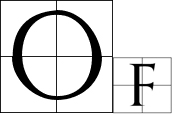 the eight individuals who, in 2013, won Nobel Prizes that year, six were Jewish, two were Israeli, and 1 was a Holocaust survivor! Intelligence is certainly one important element, but another element as important to Jewish success in science lies elsewhere.
the eight individuals who, in 2013, won Nobel Prizes that year, six were Jewish, two were Israeli, and 1 was a Holocaust survivor! Intelligence is certainly one important element, but another element as important to Jewish success in science lies elsewhere.
The 20th century began with massive migrations of Jews, to the United States, to the cities of Russia (and then the Soviet Union), and to Palestine. In each of these new lands, Jews turned to science in great numbers because it promised a way to transcend the old world orders that had for so long excluded most Jews from power, wealth and society.
Science, based as it is on only values of universality, impartiality and meritocracy, appealed powerfully for Jews seeking to succeed in their new homes.
“Illuminati & Prudentinati”
Stuart Ritchie, Scientist, who recently wrote a book on the scientific study of intelligence, wrote that human psychological traits are all heritable.
But they are not only determined by your genes, but also the environment, as during a child’s development, parenting, healthcare, nutrition, education and availability of learning resources, are all contributing factors.
We could call the first intelligent group “Illuminati”, who are well read and are or claim to be, unusually more enlightened than their peers.
We could call the other common sense group, “Prudentinati”, who are or claim to be, more sensation seeking, capable and willing to make decisions involving a higher perceived risk, and more capable of suppressing the fear that such decision may entail.
Neither of the two had however anything to do with gender, race, skin color, social status or sexual preferences.
There is no one “IQ gene,” but the study, published in Nature Genetics, is precise enough to determine that there are at least 22 specific genes related to intelligence. The researchers analyzed intelligence test scores and the complete genomes of over 78,000 people.
Only ten or fifteen years ago, studying the DNA of one person, let alone 78,000, would have been impractical. Now scientists can use this wealth of data to find the specific arrangements of molecules that code for differences in the brain.
The 22 genes implicated in intelligence made sense, too—they were genes previously shown to be involved in regulating the growth of neurons, for example. A gene being statistically associated with intelligence does not mean it is solely responsible for how well you’ll do on an IQ test. A lot of other factors come into play, and a gene is only and together, these 22 genes accounted for about 5% of the differences in intelligence scores.
From Africa and Artic Home back to Africa
Putting this into a possible context of our human evolutionary history, above the Arctic Circle, 52,000 to 19,000 years ago, where cognitive skills of speech, as first developed, which had both a dietary protein supply component, to result in developing a more complex brain, but also an environmental component of total isolation, both of these because of darkness and cold temperature, where no interaction, with other groups took place, only amongst the one same tribal group.
Then once mixed with accumulated Dravidian skills, in First Vedic Civilization 18,000 to 13,000 years ago, the new mix combination, resulting in Hebrew tribes with advanced writing skills, and further back in Aethiopia, there mix evolving further, and as we know the Greeks derived from that same gene pool, and it’s environment, leading later to both Latin and Arabic civilizations, while the Dravidian pool and Chinese pool having both been derived from the Earlier African pool of genes, where Chinese alone and not like all others, having evolved a tiny bit later than the others, but once catching up, doing so with absolute gusto, leading all others as a total group of population, behind with inventions like gunpowder, paper, printing and compass, then copied by the others. This indicates that one group leading v before others in no way guarantees future generations benefit, solely because of the gene pool.
Conclusion of this author is that the more equity and mix of us all as equals, we all 8 billion humans have in creating the next 2 billions of offspring, by 2050, the smarter, stronger and better we will all be both as individuals as well as a human civilization.

Tom V. Wilen is a former globetrotting President & COO of publicly traded multi billion Jim Beam Co, with experience from more than 150 countries worldwide. After a 30 year career where often also delivering many speeches about diversity and global issues, at distinguished forums to expert audiences, he was asked to join CUNY Baruch College as Professor there teaching MBA students on global strategy and transnational management.
A lifetime devoted and inquisitive lecturer of culture, he commenced his true_history project twenty years ago to pursue in conjunction with his network of professionals, to reveal the true history of humankind, wherever it would take him.
His focus was on climate research, symbols and orally passed down stories by indigenous and other peoples stories who had not been given a fair attention, by the victors and powers who wrote our history, dismissing them as folklore or myth – until Triquet island outside BC in Canada, proved a 14,000 year old, and to-date the oldest presence in North America of indigenous people





